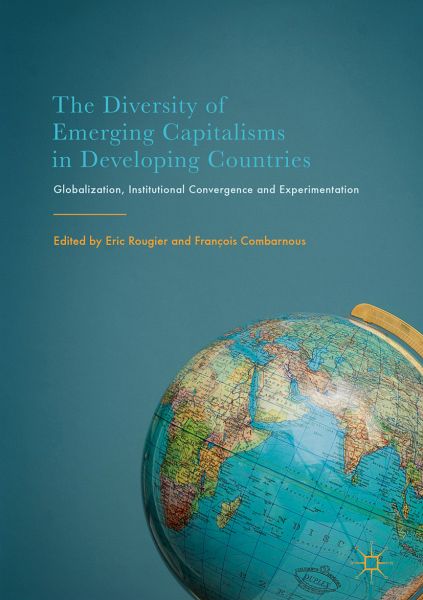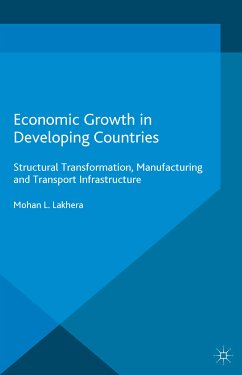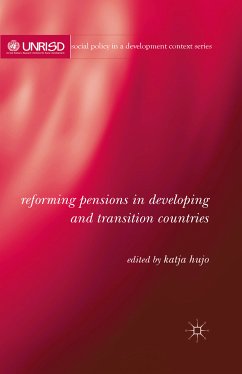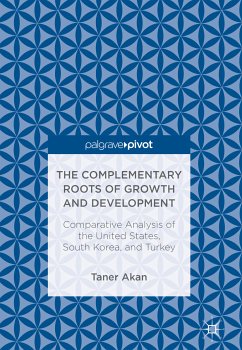
The Diversity of Emerging Capitalisms in Developing Countries (eBook, PDF)
Globalization, Institutional Convergence and Experimentation
Redaktion: Rougier, Eric; Combarnous, François
Versandkostenfrei!
Sofort per Download lieferbar
112,95 €
inkl. MwSt.
Weitere Ausgaben:

PAYBACK Punkte
56 °P sammeln!
This book presents the results of a collective and original empirical investigation of the institutional systems underlying the capitalisms that are coming to the fore in developing nations. While varieties of industrialized countries' capitalisms are extensively scrutinized, those of developing countries' capitalisms are far less documented. By implementing a unified and original comparative approach based on the institutional complementarity theory, the different contributors of the book find evidence for the originality and heterogeneity of the forms of capitalism to be observed in developi...
This book presents the results of a collective and original empirical investigation of the institutional systems underlying the capitalisms that are coming to the fore in developing nations. While varieties of industrialized countries' capitalisms are extensively scrutinized, those of developing countries' capitalisms are far less documented. By implementing a unified and original comparative approach based on the institutional complementarity theory, the different contributors of the book find evidence for the originality and heterogeneity of the forms of capitalism to be observed in developing countries. This text analyses capitalist systems as clusters of sectoral institutions and regulations, identifying differences between these clusters in a large sample of emerging and developing countries. Rougier and Combarnous bring together contributions answering the following questions: What are these clusters of institutions underlying emerging capitalisms? Are there common or specific patterns of institutional clustering across countries and what are the main characteristics of the varieties of capitalism they shape? What are their main long-term determinants? Are there specific patterns of economic outcome associated with these clusters? Can different forms of institutional complementarity be observed? How can we analyse institutional reform from this perspective?
Dieser Download kann aus rechtlichen Gründen nur mit Rechnungsadresse in A, B, BG, CY, CZ, D, DK, EW, E, FIN, F, GR, HR, H, IRL, I, LT, L, LR, M, NL, PL, P, R, S, SLO, SK ausgeliefert werden.












